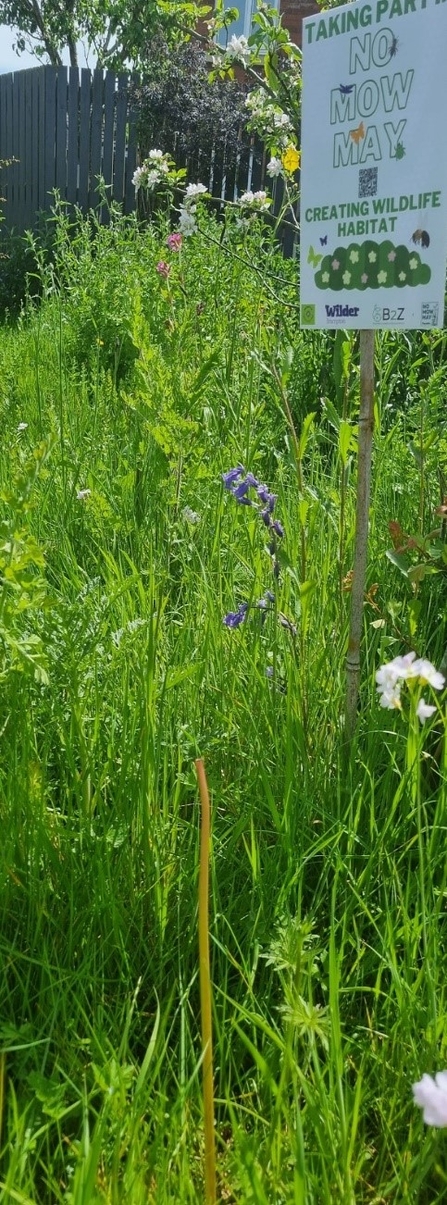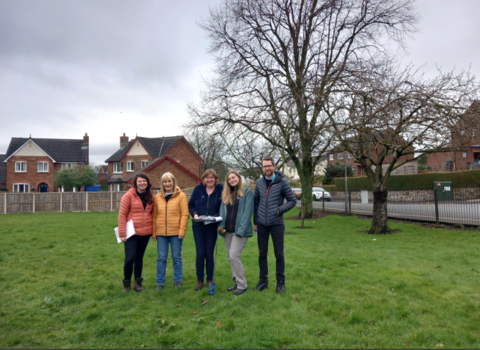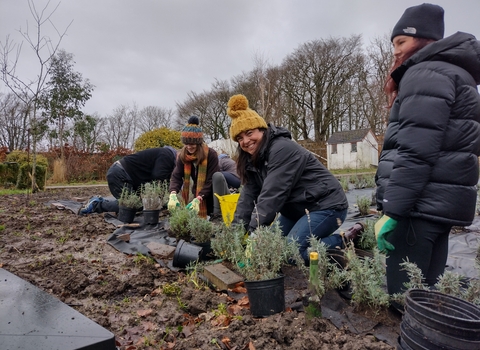
Who is it?
Brampton Green and Wild is a Facebook Group with 600 members, started by Pop Baldwin. Fed up of seeing consumerism so widespread, Pop wondered if she could start a new group of environmental “influencing”.
Pop then met Lisa Bennington and began to grow the group. It’s now managed by a team of admins (Clare Potter and Kate Reynolds). The admins see gardens as stepping stones for wildlife through towns where the wildlife corridors are not so joined up.
While Lisa has always been interested in plants, bugs and nature, the driver for Pop was having grandchildren, thinking about the world they would inherit, and wondering if she could make people stop and do something differently.
The group averages around 9 posts a day. People in the local area share their wildlife friendly gardens, from ponds brimming with tadpoles, to the flowering of cornflowers, to mason bees making homes in the walls of houses.
What did they want to achieve?
The idea of the group was to drip feed little pieces of information, which are easy for people to absorb in a fast-paced environment. Lisa has lots to share about plants in her garden and makes this engaging and inspiring through brilliant photographs. She's also posted a wealth of information about nature-based initiatives, including guides to No Mow May and bird boxes amongst other things.
Pop aims to provide the reasons behind what they’re doing and add in a little bit of learning.
How did they do it?
The group’s membership is growing rapidly. Many people who join are complete beginners and are starting gardens from scratch.
Pop says “We’re not telling people what to do, we’re not judgemental, but maybe people will read a post and think maybe I will put up a bird feeder or plant some flowers. Maybe they just read because they’re interested and engage because it’s their own choice”.
Recently, posts have centred around things like slugs, snails, woodlice and worms as there’s a lot of hard work going on below the ground that people aren’t aware of. The posts explained that even though slugs have a bad reputation in a garden, they are the food of wildlife we tend to be more fond of like hedgehogs and garden birds.
They're also a key player in the decomposition process of soil and help recycle nutrients. They can even act as pollinators for plants. Comments after the post had people saying things like “I’ve never felt so bad, I usually throw slugs over the fence!”.

What was the outcome?
In Spring 2024 the group surveyed their members and found that 45 people were planning on undertaking a huge 302 actions for wildlife in their garden.
The group has long been supporting Plant Life’s No Mow May campaign and recently teamed up with another local initiative, Brampton 2 Zero. Together, they distributed 50 signs across Brampton to raise awareness of why people were choosing to let their grass grow long in May. They also provided a detailed information booklet with the answers to common questions.
The group’s proudest achievement to date is getting a local park included in Cumberland Council’s conservation grasslands scheme.
Brampton Green & Wild approached Cumberland Council about leaving some areas of the park to grow over summer for wildlife. Cumberland Council are now including the areas in their conservation grassland scheme. The areas will be enhanced for pollinators later this year through sowing and planting of Cumbrian meadow wildflowers, helping to establish wildflower-rich habitat for Brampton’s pollinators.
This is being made possible through funding from Fibrus broadband, as part of Hyperfast GB connecting Cumbria. Community planting days will take place this autumn. As Lisa also volunteers at the Gosling Sike wildflower nursery, she will be planting out flowers she’s grown from seed into the park.


